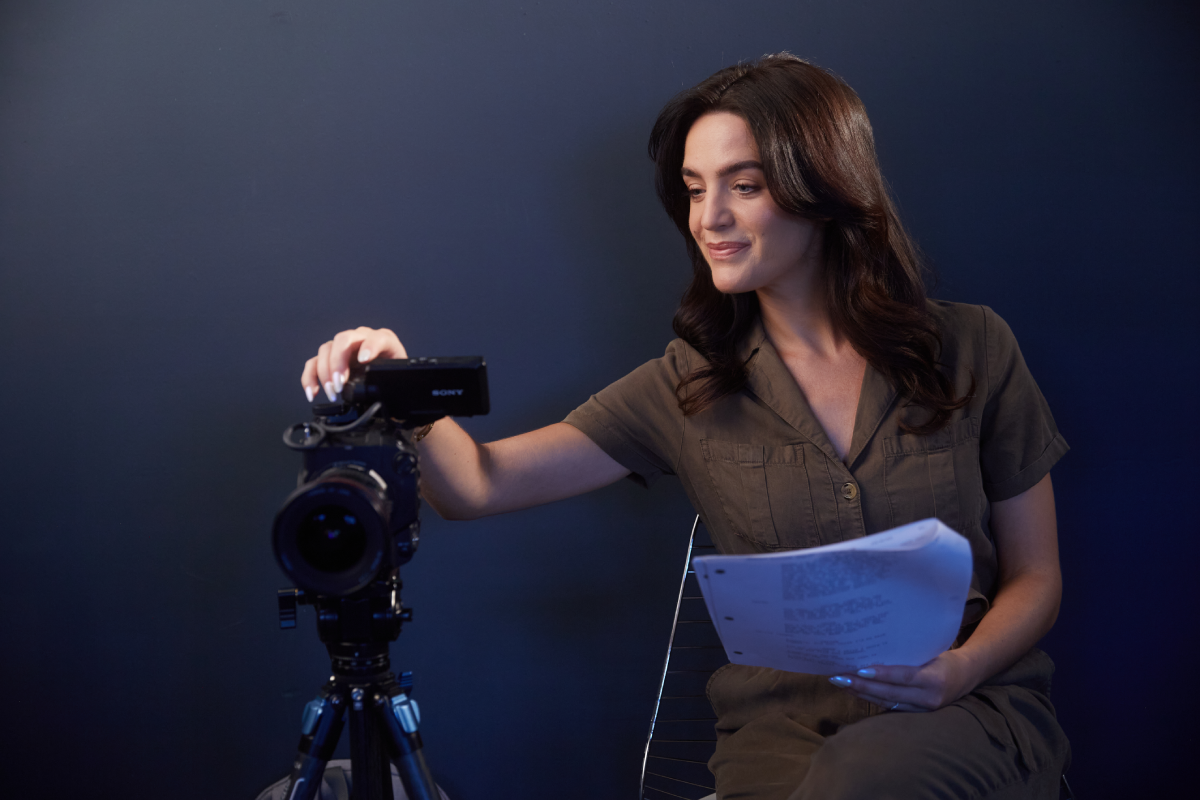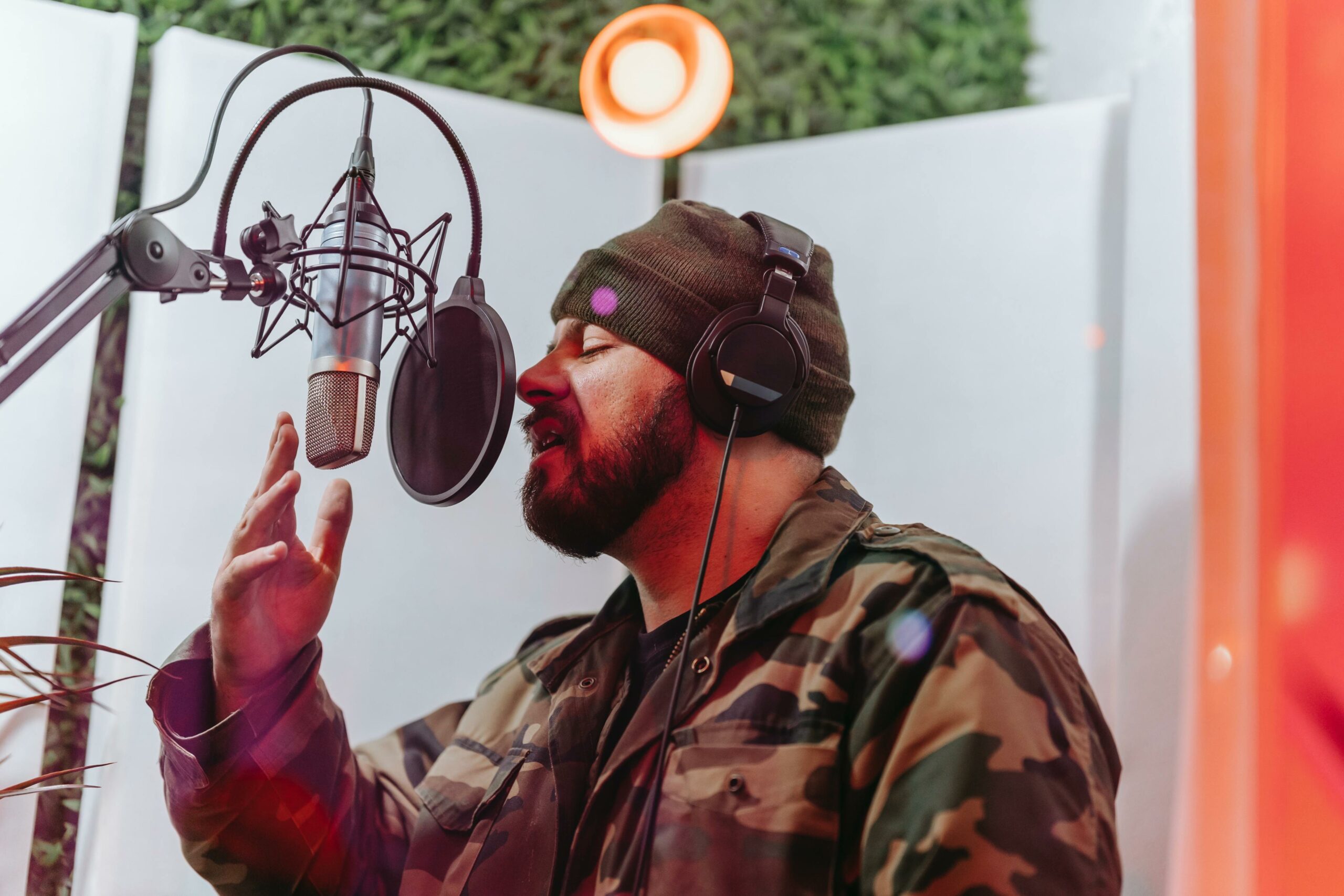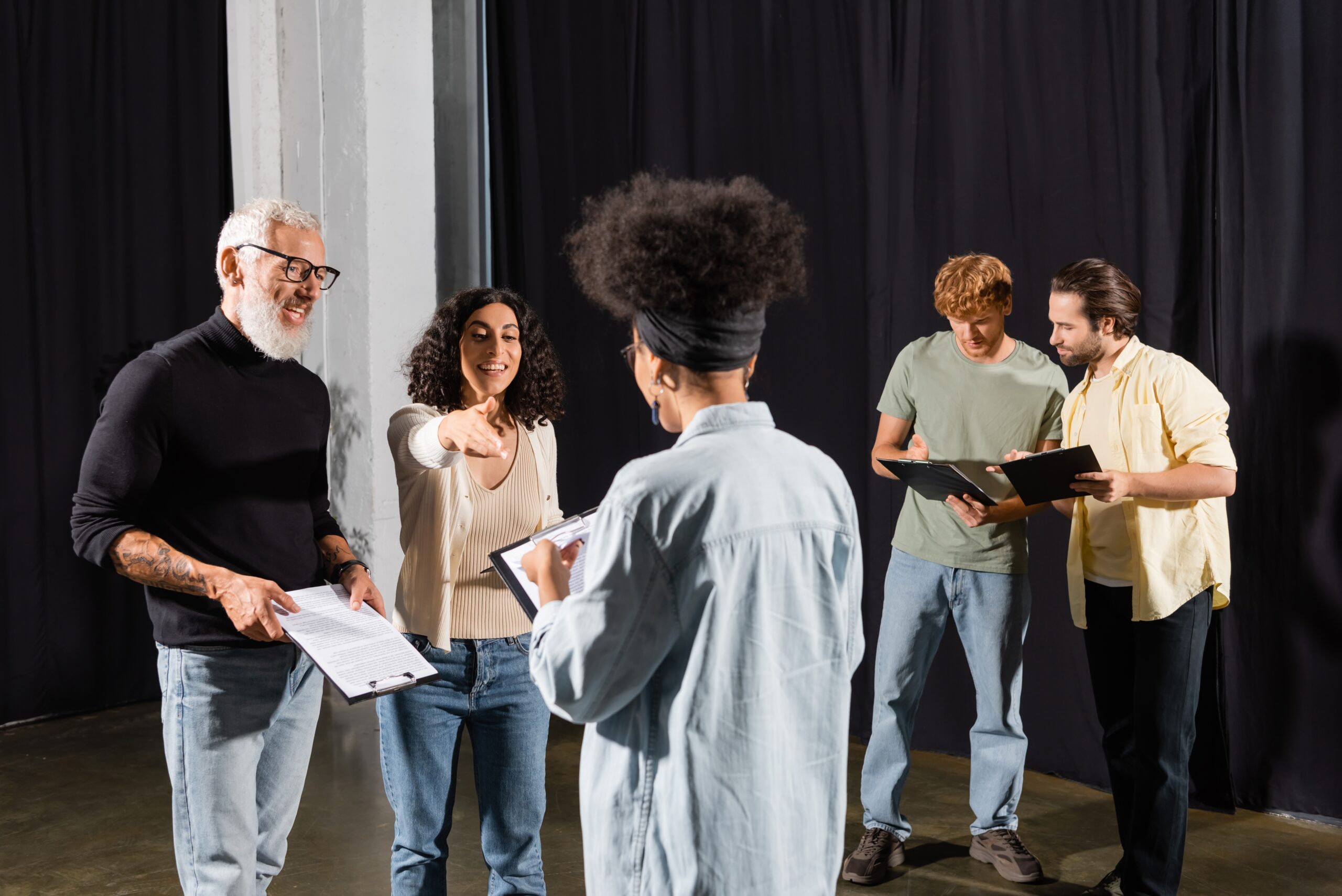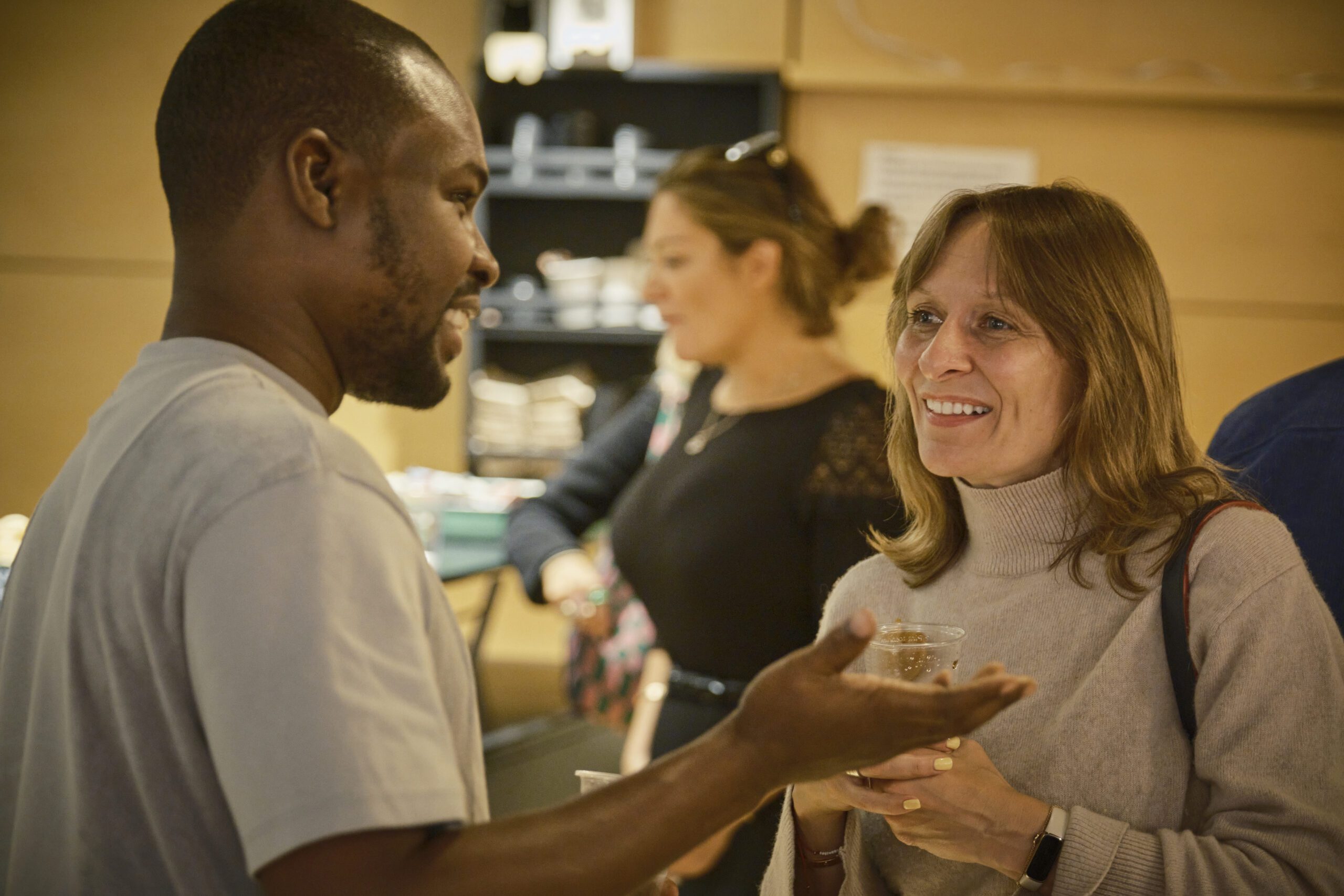Experienced voice over artist Abbie Andrews explains what commercial voice over work is and how you can get started in it.
By Abbie Andrews
The world of voice over (VO) is full of possibilities. As actors, especially when starting out in our careers, we are often defined by what we look like. However, behind the microphone we can become pretty much anything within our vocal range. In one single day, I voiced a cartoon elephant, a five-year-old boy and a grandmother in her 80s! Start playing with your sound and who knows where you could be transporting a listener to.
What Makes Commercial Voice Overs Different?
The big difference with voicing commercials compared to other types of voice work is the underlying tone of selling a product. In no other strand of the VO industry do we have a sprinkling of something sales related. Of course, when voicing documentaries we want to keep the listener intrigued, or when we voice video game characters, we want the gamer to be excited and hooked into the storyline but with commercials, we actors must be able to match our sound and energy to that of the product being sold.
- Match your voice energy to the product
Before your recording session, do some research into what the product is to help you understand the energy you need to project. For example, is the product bright, young and fun? Or is it smooth and luxurious?
Try reading the following line out loud and inject a different energy into your voice each time you read it to see how it changes your delivery:
“It’s not for the faint-hearted!”
Keep listening to commercials when you hear them in your day to start hearing what actors are doing and how many different energies you can pick up on.
- Understand your audience
Think about who the product is being sold to. Who is the type of person who would be interested in the product and would want to buy it? This is called the target demographic and understanding who you’re talking to will really change the energy with which you approach a script.
- Working with music
Most commercials are edited with music playing behind your voice. In recording sessions, you’ll often be played the music so it can inform your delivery and sometimes you’ll do every take with the music playing to help you elevate your voice to where it needs to be to fit in with the volume and energy. Let this inform your delivery so it isn’t too quiet or too under-energised so when it’s all edited together it’ll sound just right!
- Practice your take and time yourself
Most adverts are roughly 30 seconds long however with social media, podcasts and YouTube becoming even more popular platforms for brands to advertise on, we often have 10 or even five second scripts!
When you’re practising reading your script out loud, make sure you do a few takes where you time yourself. Try getting your take down to about one second before the total time allowance as this will help the editor, especially if the brand would like a jingle or sound effect added in. Preparing in this way will make sure you’re entering your recording session one step ahead.
How Do I Get Into Voicing Commercials?
An absolute must for a voice artist is having a good quality voice reel. What do I mean by good quality? A set of roughly 5-7 different commercial clips that are professionally recorded and produced.
In my experience, I haven’t had to audition for many commercial voice overs as actors are regularly cast for commercials straight from their voice reel so it’s beneficial to invest in a good one. It should showcase your voice in lots of different energies and deliveries, demonstrating pacing, intensity and ranges i.e. using higher tones or lower tones of your voice.
Preparing For A Recording Session
A well-rounded vocal warm-up is essential! Most of us understand that when we exercise it’s important to warm up before putting your body through an exertion of energy in order to prevent injury and improve performance. It’s exactly the same for our voice.
- Warm your vocals up
A good warm-up should include:
- Relaxation – massage and stretching to loosen the jaw
- Connecting to breath – finding that deep belly breath and waking up the abdominal muscles to support our voice and produce it safely
- Range work – gently awakening all of the pitches and colour of your voice
- Articulation/diction – start with some tongue rolls, stretching the tongue out, lip trills and tongue twisters to get all the articulators performing at tip-top speed and with precision.
- Annotate your script
Another useful tip is to come up with an annotation system for yourself and your scripts. When you’re in a recording session for a commercial, it’s not unusual to be taking lots of direction and performing multiple re-takes. To help keep track of the direction being given to you, it’s important to have a visual way of jotting it down on your script so you can build a performance and relax without worrying if you’ve forgotten a note.
Some simple annotations I use are:
V – I put this symbol above the point in the script where I plan to take a breath.
l – sometimes we need to let a sentence or phrase land with the listener so putting in a little line can help to remind us to take a quick beat.
Arrows are incredibly helpful and have a few uses:
→ I often get the note “can we go straight through that line with more flow” so I will pop an arrow underneath the line to remind myself to keep the line going and not break it up.
↑ I use an upward-facing arrow if I want to use an upward inflection in my voice.
↓ A downward-facing arrow reminds me to bring my tone down on a certain word or phrase for impact.
It’s important to come up with your own system so that it’s unique to you and your process. This tactic really helps you to relax and trust you’ve kept up with all notes, to build the best performance possible for your client.
- Don’t forget to smile!
For certain scripts, smiling on a word or a line can make a big impact. Try it now with the line below and see how a big grin can change the delivery and energy of the line:
“It’s amazing!”
The feeling of freedom and almost endless possibilities drew me into this part of the performing industry and commercial voicing can be so much fun! Hopefully it’ll be the same for you.
Image by Anna Pou.
 Abbie Andrews is a professional actress and voice over artist, starting her career winning the BBC Carleton Hobbs Award in 2017. Abbie’s professional credits include: BBC Radio Rep Company Member where she performed alongside Bill Nighy and Lenny Henry, also becoming a series regular in the award-winning BBC Radio 4 series of Home Front. More recently, Abbie has voiced BBC Book at Bedtime and commercials for Vinted, Bumble, Penguin Books, Maltesers, Google Chromebook, and Screwfix. Abbie also launched Voice Over Coaching and Voice Reel company V.O. Gym in early 2021.
Abbie Andrews is a professional actress and voice over artist, starting her career winning the BBC Carleton Hobbs Award in 2017. Abbie’s professional credits include: BBC Radio Rep Company Member where she performed alongside Bill Nighy and Lenny Henry, also becoming a series regular in the award-winning BBC Radio 4 series of Home Front. More recently, Abbie has voiced BBC Book at Bedtime and commercials for Vinted, Bumble, Penguin Books, Maltesers, Google Chromebook, and Screwfix. Abbie also launched Voice Over Coaching and Voice Reel company V.O. Gym in early 2021.



















